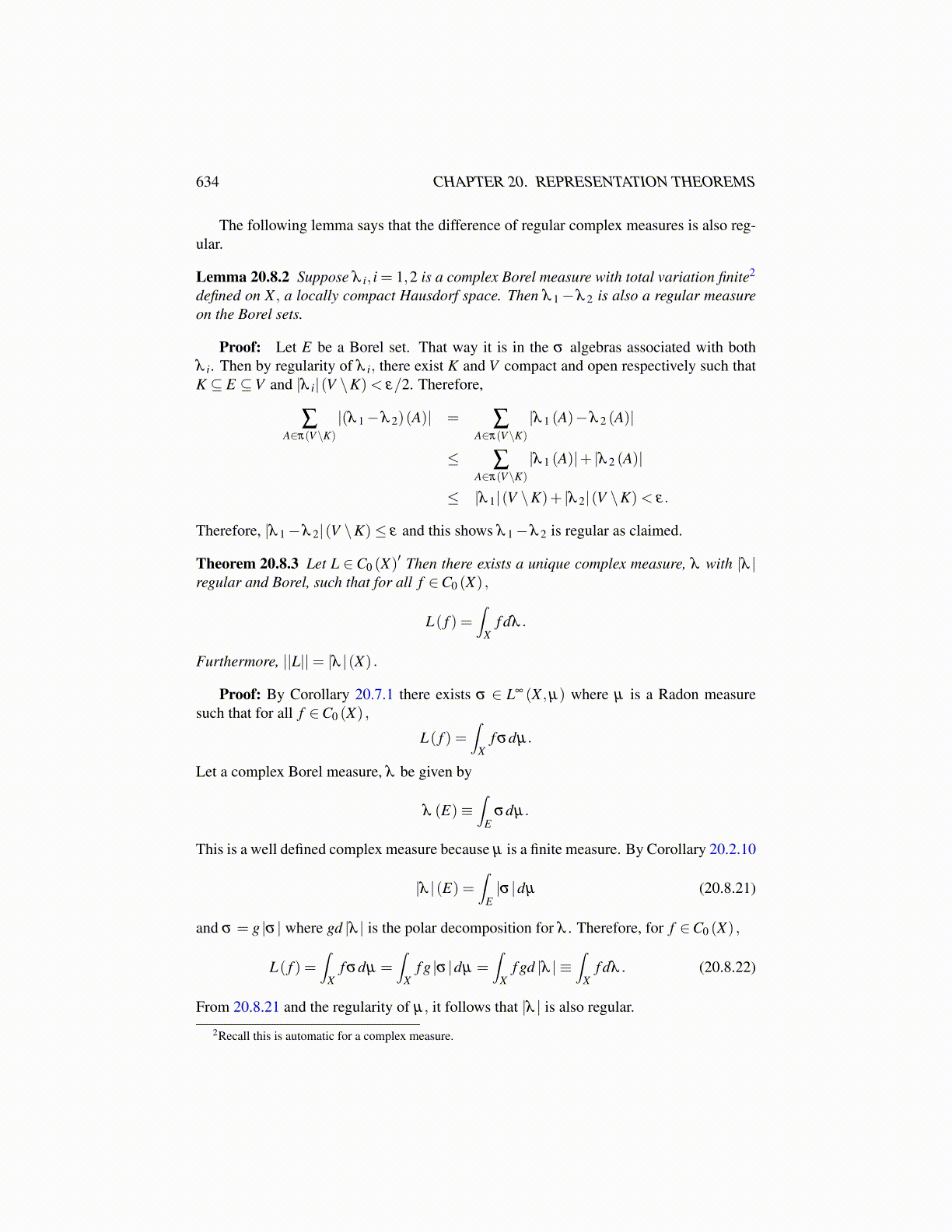
634 CHAPTER 20. REPRESENTATION THEOREMS
The following lemma says that the difference of regular complex measures is also reg-ular.
Lemma 20.8.2 Suppose λ i, i = 1,2 is a complex Borel measure with total variation finite2
defined on X , a locally compact Hausdorf space. Then λ 1−λ 2 is also a regular measureon the Borel sets.
Proof: Let E be a Borel set. That way it is in the σ algebras associated with bothλ i. Then by regularity of λ i, there exist K and V compact and open respectively such thatK ⊆ E ⊆V and |λ i|(V \K)< ε/2. Therefore,
∑A∈π(V\K)
|(λ 1−λ 2)(A)| = ∑A∈π(V\K)
|λ 1 (A)−λ 2 (A)|
≤ ∑A∈π(V\K)
|λ 1 (A)|+ |λ 2 (A)|
≤ |λ 1|(V \K)+ |λ 2|(V \K)< ε.
Therefore, |λ 1−λ 2|(V \K)≤ ε and this shows λ 1−λ 2 is regular as claimed.
Theorem 20.8.3 Let L ∈C0 (X)′ Then there exists a unique complex measure, λ with |λ |regular and Borel, such that for all f ∈C0 (X) ,
L( f ) =∫
Xf dλ .
Furthermore, ||L||= |λ |(X) .
Proof: By Corollary 20.7.1 there exists σ ∈ L∞ (X ,µ) where µ is a Radon measuresuch that for all f ∈C0 (X) ,
L( f ) =∫
Xf σdµ.
Let a complex Borel measure, λ be given by
λ (E)≡∫
Eσdµ.
This is a well defined complex measure because µ is a finite measure. By Corollary 20.2.10
|λ |(E) =∫
E|σ |dµ (20.8.21)
and σ = g |σ | where gd |λ | is the polar decomposition for λ . Therefore, for f ∈C0 (X) ,
L( f ) =∫
Xf σdµ =
∫X
f g |σ |dµ =∫
Xf gd |λ | ≡
∫X
f dλ . (20.8.22)
From 20.8.21 and the regularity of µ, it follows that |λ | is also regular.
2Recall this is automatic for a complex measure.